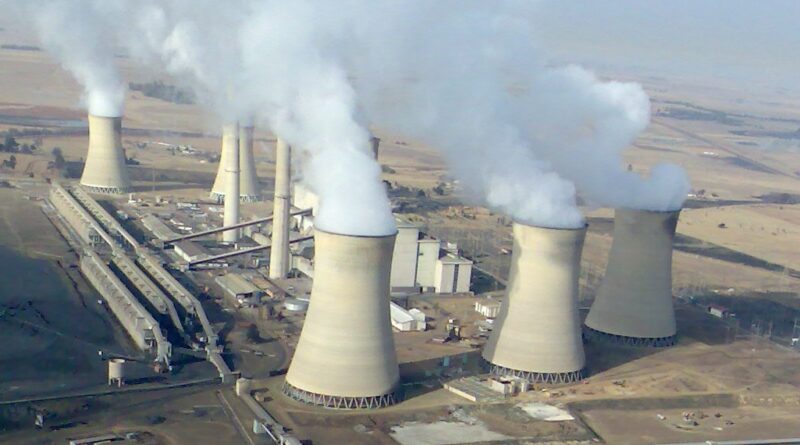A feasible South African policy solution to the crisis of electricity generation
The electricity crisis in South Africa is self-inflicted. This has become clear from the many costly disruptions in electricity supply over too long a period. There is something fundamentally amiss with government policy in this area. At the centre of the problem is Eskom, the leviathan which enjoys monopolistic protection shielded from potential competition.
The solution to the electricity shortage issue is straightforward: Let the private sector participate in the generation of electricity!
We should start by counting the cost of government’s stubborn propping up of Eskom’s monopoly at great cost to the beleaguered taxpayers and citizens of South Africa. In 2015 Eskom received a whopping R 60 billion bailout and an additional R 23 billion in cash. Lest it be forgotten, this is on top of previous subsidies. Almost incredulous. Yet today in 2022 Eskom is still R 402 billion in the red!
Think about how many school buildings and clinics could have been fixed with that money, and how many new ones built; how many roads and water reticulation systems could have been repaired and maintained; how many clinics built especially for the rural communities that must travel over long distances to access health services. Then think also about how a percentage of the overall amount flushed down the drain could have improved policing services by granting increases in the salaries of the personnel and thus reducing or minimizing the risk of succumbing to bribery, building more police stations, and purchasing more police vans.
The money that was squandered so recklessly was arbitrarily expropriated in the form of taxes from hardworking individuals and productive enterprises. Had these funds not been arbitrarily extracted from them the funds could have been used in the expansion of businesses and the generation of more employment and wealth.
What a lamentable opportunity cost!
Nothing short of a paradigm shift can effectively address South Africa’s energy crisis.
No band-aid half-measures should be considered or implemented.
The key is to engage the issue from a position of pragmatism rather than ideology. Human nature being what it is, incentives are necessary to produce desired results. This fact should be internalised and adopted by policymakers as a point of departure.
Policies which willfully ignore, or even repudiate the profit motive, will impoverish the country. Investors, whether domestic or foreign, are governed by the principle of incentives. Altruism has no place in the economic arena. Instead, it is the powerful invisible hand that is in operation as elucidated to by the economist and philosopher Adam Smith (baptised 1723 – died 1790) in his seminal work, The Wealth of Nations. Paraphrased, he explains that business enterprises and entrepreneurial individuals produce goods and services that provide for their fellow humans (consumers) as if guided by an invisible hand to do so. Significantly, this phenomenon occurs not as an intention, but because of pursuing business interests.
Consistent with the invisible hand phenomenon, no one embarks on a business venture to create jobs. However, employment becomes a direct unintentioned consequence of the spirit of enterprise. Likewise, Investors base their investment decisions exclusively on which products and which markets will generate the best returns on their investments. Policies that are compatible with sound economic principles will ensure maximal outputs and, in the case of electricity, adequate supplies and the positive challenge of overcapacity.
The overall challenge is to incentivise electricity generation by implementing the following measures simultaneously:
- Put an end to the subsidisation (in whatever form) of Eskom.
- Let Eskom participate in electricity generation on an equal footing with other producers of electricity.
- Given that electricity is the oxygen of the economy, exempt businesses that are involved in electricity generation from taxation for a stipulated period of years. This will encourage investors to invest in the sector. The absence of taxes would allow such businesses to recoup capital expenditure in the shortest possible time. Avoid the regulation of prices and the capping of profits made from the generation of electricity. It should be borne in mind that irrational, counter-productive attempts to control prices and cap profits decimated small businesses in the pharmaceutical industry, not so long ago.
- In this scenario electricity generating enterprises can sell electricity to Eskom.
Freedom to generate and trade in electricity should encourage the proliferation of businesses involved in the generation of electricity, ranging from the humble owner of a home generator, a wind turbine, or a set of solar panels, selling extra capacity to their neighbours in the local community, to larger and more complex installations feeding into the national grid, will totally transform the electricity business and reduce prices.
Freeing the market in electricity would energise the economy. This requires a substantial paradigm shift. It requires a pragmatic rather than an ideological approach. And it requires the abandonment of statist and dirigiste ideologies such as the easily predictable devastating socioeconomic consequences that the contemplated enactment and implementation of Expropriation of Land (property) Without Compensation would wreak on the country. Unfortunately, this cannot be expected from a government which is wedded to such ideologies.




